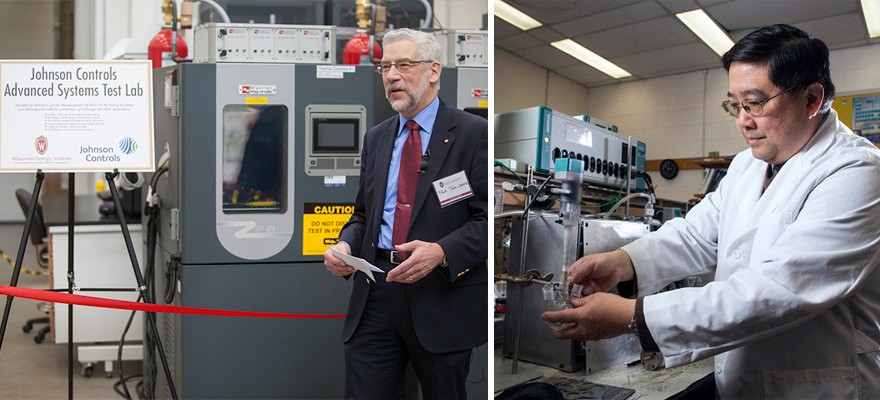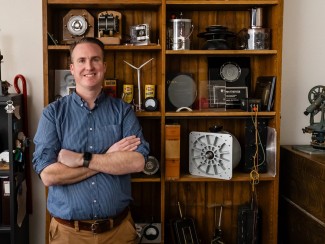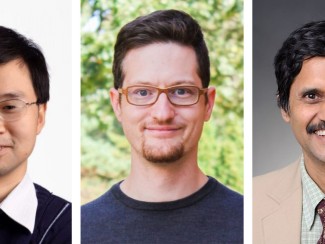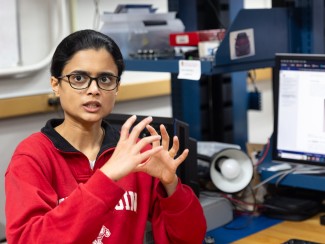With expertise in energy storage systems for electric vehicles, smart-grid technology and military applications, Deyang Qu will be the first Johnson Controls Endowed Professor in Energy Storage Research.

The industry-academic partnership aims to advance research, development and commercialization of energy storage technologies in a collaborative appointment among Johnson Controls, the University of Wisconsin-Milwaukee (UWM) and the Wisconsin Energy Institute (WEI) in the University of Wisconsin-Madison College of Engineering.
Qu earned his PhD from the University of Ottawa in Canada and a bachelor’s degree in chemistry from Wuhan University in China. For more than a dozen years, Qu worked in research for private industry, including Rayovac Corporation (now Spectrum Brands) and Emtech Technology Corporation (Ashurst Technology Center). Currently a faculty member in the Department of Chemistry at the University of Massachusetts Boston (UMass Boston), Qu will be based in the UW-Milwaukee College of Engineering & Applied Science and affiliated with the Wisconsin Energy Institute at UW-Madison.
Michael Corradini, Wisconsin Energy Institute director and the Wisconsin Distinguished Professor of engineering physics at UW-Madison, says Qu will contribute valuable expertise as the Johnson Controls chair. "His research has encompassed broad engineering interests, including the development of high-performance energy storage systems for emerging electric vehicle technologies, and fundamental material and electrochemistry research,” says Corradini. “He will be a great addition to the Wisconsin Energy Institute and collaborator in the Center for Renewable Energy Systems.”
In his new role, Qu will provide long-term strategic coordination among UW-Madison, UW-Milwaukee and the clean energy industry to refine curricula, spur sponsored research, and develop a talent pipeline. “He will take the lead for the applied research and development projects we already have in place, execute new technology development projects and will continue to mature the skill sets needed to foster future employees to ensure we meet our goal of groundbreaking discoveries in energy storage technologies,” says MaryAnn Wright, Johnson Controls Power Solutions vice president of engineering and product development.
This will also provide a unique opportunity for students to gain early exposure to the real world of industrial engineering—and my focus will be on developing student curricula to build the skill sets needed for advanced technology industries.
Deyang Qu
In addition to the endowed professorship, Johnson Controls multi-million-dollar investment in research has produced two joint laboratories in the UW-Milwaukee College of Engineering & Applied Science, where faculty, students and the company’s scientists work side-by-side. One of the labs is a state-of-the-art "dry pilot manufacturing" lab—the only one of its kind on a university campus in North America—which enables work on the next generation of lithium-ion batteries.
The company also has funded and installed the Johnson Controls Energy Storage Research Lab, housed in the Wisconsin Energy Institute at UW-Madison, to test, evaluate and optimize how battery systems perform and interact with a vehicle's powertrain and electrical architecture.
Qu says he is looking forward to leading joint projects that will take ideas and concepts about storing energy out of labs and get them into products. “This will also provide a unique opportunity for students to gain early exposure to the real world of industrial engineering—and my focus will be on developing student curricula to build the skill sets needed for advanced technology industries,” he says.





